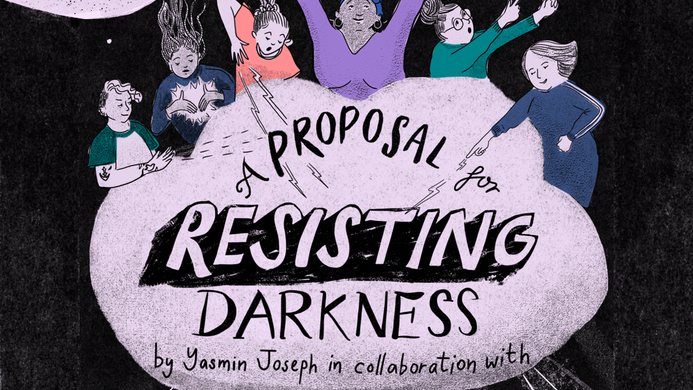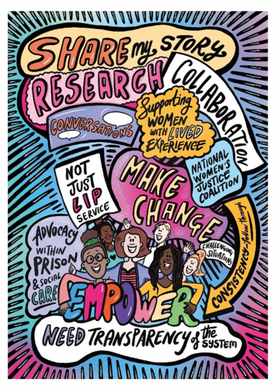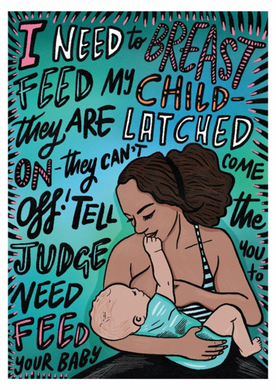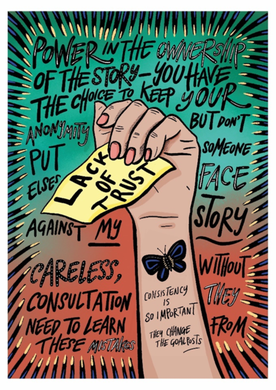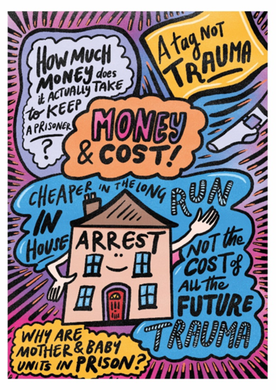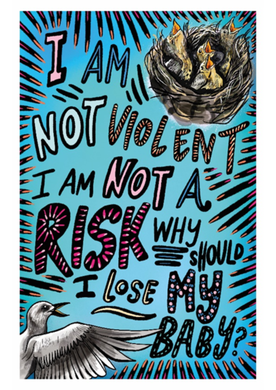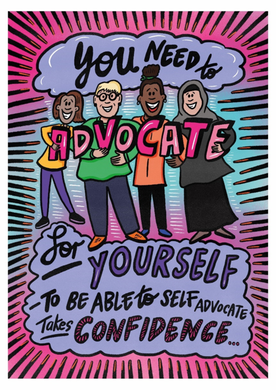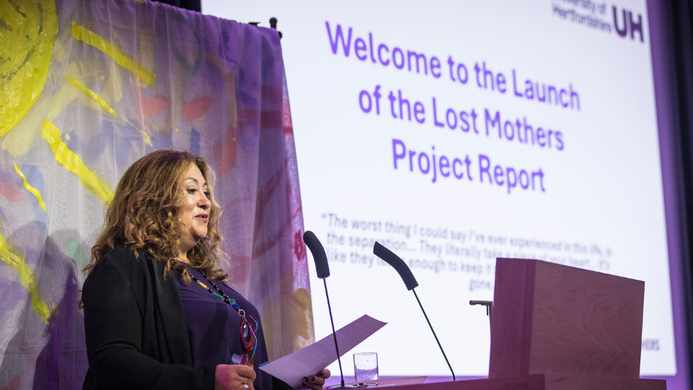
Midwife and researcher Dr Laura Abbott shares insights from her ground-breaking research project
Women make up just 4% of the prison population in England and Wales, yet over 70% are there for non-violent offences [1]. A quarter women are held in prison on remand, without having been sentenced [2]. In 2023, 215 pregnant women were held in custody. Fifty-three babies were born to mothers in prison [3].
There are six mother and baby units in England, but access to these units is far from straightforward, and the processes involved can be complex and unclear. Some women already have children’s social care involvement, while others only face it after entering prison. The care for separated babies varies - some go to family, others to foster care or adoption.
Of the 92 women who applied for a place in a Mother & Baby Unit (MBU), 51% were admitted. Being separated during those critical first 1,001 days can seriously harm both mother and infant in lasting ways. While separation is sometimes necessary for the safety or protection of the baby, we currently don’t track how many mothers are separated from their babies at birth or when entering prison.
The Lost Mothers Project, funded by the Economic and Social Research Council (ESRC) and led by the University of Hertfordshire in partnership with Birth Companions and women with personal experience of pregnancy, motherhood and separation in prison, set out to break this silence and understand the experiences of women compulsorily separated from their babies in prison.
Our Lost Mothers research took us inside five women’s prisons. We spoke with 29 women who had experienced, or were facing, being separated from their babies. We also interviewed 47 professionals, from prison officers and social workers to midwives and health visitors and observed mother-and-baby unit (MBU) decision-making boards in action. It was clear from the outset that women wanted us to share their experiences with decision makers:
“There’s half the Mum’s in here probably in the same situation, and for you to come in and give us a chance to tell somebody how we feel from what they’ve done, it’s nice. It’s nice to know that someone is trying to do something about it. That is nice, knowing that somebody’s actually going to try and help the people that need the help…” Chelsea
Women described separation not just as a loss, but as an emotional tearing, a living bereavement made worse by the coldness of the prison environment.
“After six days, they came and picked her up, and I've never felt the pain like that in my whole life. It was like something ripping off me, even the nurses cried, I cried, the staff cried. I think they got traumatised as well, some of them. It was just really hard, and then I come back to prison, and I just collapsed." Freda
Mental health challenges were widespread. Many women hid their distress for fear of being labelled “unstable.” Without a safe space for grief, emotional shutdown and the risk of self-harm became survival strategies.
Crucially, many women spoke of losing their sense of identity as mothers. In a system that prioritises punishment over care, staying connected to their children, and their own maternal selves was a battle against bureaucracy and bias:
“I've never been so happy for my baby to shit all over me. I was changing his nappy, and it just came squirting out, all up my arm. Normally, I'm like, oh, I've got shit all over me, but I was just like, thank you. Just leave it there for a minute and embrace it. And I did; I loved it, because I knew that they weren't going to be many times. I want as many things in the normal 'mum life' to happen in this week, as possible. So, I felt like I had part of being a mum with him.” Mollie
Beyond the mothers, the professionals around them also struggled within a system ill-equipped to provide care.
Many prison officers had no formal training on supporting pregnant women or mothers. Instead, they learned “on the job,” balancing security duties with the emotional needs of the women in their care.
Midwives and social workers described feeling overwhelmed and isolated. A lack of joined-up working, rigid processes, and a culture of blame made it difficult to advocate for mothers in meaningful ways.
“And there's no amount of training, because when you go through prison college, they tell you all about the male. It's all very male-orientated, because the prison service is male-orientated, but you don't get that - Oh, by the way, you're going to a female establishment, you will encounter women who are pregnant, who will be giving birth, who will have their children and without their children.” Prison Officer
Mother and Baby Unit (MBU) decisions were often made without meeting the mothers involved. Legal documents were signed without proper explanation. For many, the process felt like being swept along by a system they didn’t understand and one in which they had no voice.
Racism and structural bias were also evident. Black and minoritised women are overrepresented in prison but underrepresented in decision-making roles. Bias, conscious or unconscious, shaped perceptions of women’s parenting potential, compounding injustice. Experiences of separation for some women in prison are shaped by a lack of cultural sensitivity in decision-making.
“At one board there were 11 members present, including a heavily pregnant Black woman who was applying for a place on an MBU. All board members were White, comprising the chair, head of services, someone to take minutes, social worker, midwife, MBU manager, children services manager, and observers.” Researcher
The Lost Mothers Project uncovered:
What made this project different was how deeply women with lived experience were involved, not as case studies, but as co-creators, collaborators, and decision-makers at every stage [4].
Through our partnership with Birth Companions and their Lived Experience Team (LET), women shaped our research questions, reviewed materials, informed our methodology, and guided the direction of the project from beginning to end. Their voices were not added in later, they were the starting point, the foundation, and their insight anchored every stage of the project.
As part of this process, we spent time together exploring the research creatively, writing poetry, analysing findings, sharing stories, and making space for care. We worked alongside artist Beci Ward, who helped us capture these moments visually, allowing the emotional and narrative threads of the project to take shape in ways beyond words (you can see some of Beci's artwork at the end of this article).
The time we spent together was crucial, not rushed, not extracted, but built on trust, reflection, and shared purpose. Clean Break Members, along with Artistic Director and Joint CEO Anna Herrmann and playwright Gurpreet Kaur Bhatti, joined us during this process too, deepening the creative dialogue and helping shape what would become the play Scenes from Lost Mothers.
Over the three years of this project, women with lived experience were the golden thread. From designing the project logo and choosing the title, to shaping the play and the final report, their input was woven throughout.
‘Nothing about us without us’ was not a slogan - it was the way we worked. And it made all the difference.
Facts and research matter, but sometimes, only stories can make us feel the truth. That is why we worked with Clean Break, the groundbreaking theatre company dedicated to telling women’s stories from within the criminal justice system, and acclaimed playwright Gurpreet Kaur Bhatti, to create Scenes from Lost Mothers.
This collaboration was the result of years of conversation and shared vision. As long-standing admirers of Clean Break’s work, we were drawn to their commitment to inclusivity, integrity, and women-centred storytelling. Their ethos aligned powerfully with ours: to centre lived experience, challenge injustice, and reach the public in ways that policy and academic papers alone never can.
At the heart of this process was our partnership with Birth Companions, whose deep expertise and tireless advocacy for women in prison grounded our research. Their Lived Experience Team (LET) not only shaped our research but were also core to the creative development of the play. Their insight, honesty, and courage were the emotional backbone of the story we wanted to tell.
Working with Gurpreet, Anna and the team brought that story to life. Gurpreet engaged with the research sensitively and patiently, taking time to speak in depth with our team, and individually with women with lived experience, to truly understand the layers of pain, complexity, and hope at the heart of maternal separation in prison.
From the beginning, Gurpreet asked us to trust her with our stories, and it was easy to do. Her ability to listen deeply, hold space with care, and translate experience into authentic drama has been extraordinary. Scenes from Lost Mothers evolved through honest dialogue and mutual respect, ensuring that the final piece was not only powerful, but true.
More than a performance, it is a call to action, one shaped by collaboration, creativity, and the belief that change begins when we truly listen.
Our findings make one thing clear: prison is not a safe or appropriate place for pregnant women or mothers of young children. The trauma of separation is severe, and in many cases, completely avoidable.
We urgently need:
Models in the UK and abroad show that community-based sentencing and support lead to better outcomes, reducing reoffending and keeping families together.
With Scenes from Lost Mothers now reaching wide audiences and our findings published, we hope this work will help shape future policy, practice, and public understanding.
The needs of mothers and children must be prioritised. Their experiences, too often unheard, are now part of the conversation, and they must stay there.
Thank you to everyone who contributed to this project. Together, we've built something powerful - a body of work that brings hidden experiences of mothers separated from their babies in prison into view.
Let’s keep this conversation going, and work together to put mothers’ and babies’ needs at the heart of our justice system, and to campaign for meaningful alternatives to separation and imprisonment.
[3] HMPPS, 2024
